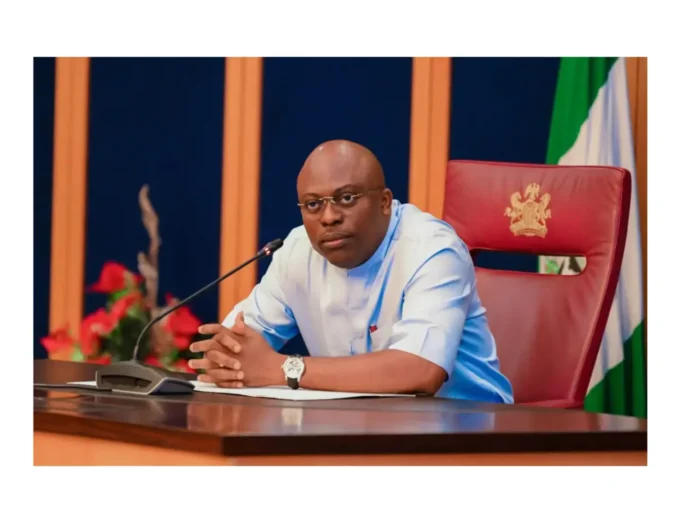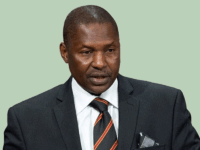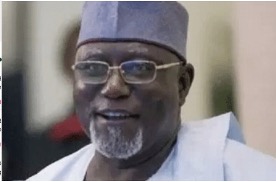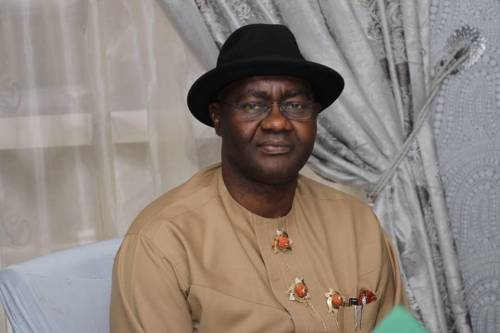Bennett Oghifo
After four exhiliarating days of showcasing Africa’s ingenuity, creativity through the arts and crafts of talents that abound within the continent and beyond at the Federal Palace in Victoria Island Lagos, the 10th anniversary edition of ART X Lagos wrapped up on Sunday November 9th, 2025.
For many, it was an exciting opportunity to savor the vision, tenacity and the staying power of Tokini Peterside-Schwebig, Founder of ART X Lagos, an art fair which has seemingly assumed a life of its own.
Now with 10 years of putting the prestigious fair together under her belt, Peterside-Schwebig, described as a visionary whose passion a decade ago birthed an idea fast becoming a phenomenon in Africa and by extension, the globe, said this year’s milestone edition is aptly themed ‘Imagining Otherwise, No Matter the Tide’.
Tagged “10X,” it marked a bold expansion of the fair’s mission to showcase the artistic ingenuity of Nigeria and the African continent. The 2025 fair explores resilience, hope, and creative possibility in contemporary African art.
Although the exhibition was declared open on November 6th, the 10 X edition marking the tenth anniversary of ART X Lagos made its debut on Friday, November 7, 2025 with a glittering and star-studded VIP preview at the ART X Lagos Amphitheatre inside Federal Palace, Victoria Island, Lagos.
The ART X Lagos VIP Preview marked the exclusive opening of the 10th edition of ART X Lagos, West Africa’s leading international art fair, and the invitation-only evening offered collectors, patrons, and select media an intimate first look at this year’s presentations before the public opening.
Among the dignitaries were the Governor of Lagos State, Mr. Babajide Sanwo-Olu; Executive Director, Zenith Bank, Dr. Adobi Nwapa; Finance Minister and Coordinating Minister of the Economy, Mr. Wale Edun; Lagos State Commissioner for Tourism, Arts and Culture, Mrs. Toke Benson-Awoyinka; Hannatu Musa Musawa, the Minister of Arts, Culture & the Creative Economy; Director, Afreximbank, Mr. Stephen Kauma; Chairman, Anap Jets FZE, Mr. Atedo Peterside; Ambassador of France to Nigeria, Mr. Marc Fonbaustier; Mr. Bolaji Balogun, CEO Chapel Hill Denham; Dr. Jim Ovia Founder, Zenith Bank Plc and CEO, Stanbic IBTC Pension Managers, Mr. Olumide Oyetan.
Also present were stakeholders from the art, culture, and creative industries, with featured curators for the edition listed – Missla Libsekal, Curator-at-Large; Jumoke Sanwo, Curator of the Talent Advancement Platforms; Teju Okiti, Curator ART X Cinema; Fikayo Adebanjo, Curator of Audience Engagement and Lanre Masha, Curator, ART X Live! to guide the event.
Founded by Tokini Peterside-Schwebig, ART X Lagos has over the past decade grown into a vibrant platform celebrating African creativity, innovation, and cultural expression. Speaking at the launch which heralded the opening in October, Peterside-Schwebig reflected on the journey so far.
“This is my 10th time standing in front of an audience to introduce the year’s edition of ART X Lagos, and honestly, it fills me with such pride and gratitude to see you all here to commemorate this moment,” she stated.
The 2025 fair, a celebration and tribute to the resilience, impact and growth of what has become one of the transformative events held annually in Lagos over the last decade, kicked off with aplomb on the evening of Friday, November 7 with an unforgettable setting and incredible array of art works, ideas and ventures.
To say it was a successful outing for the visionary Peterside-Schwebig was an understatement.
During a session with journalists about the ten-year journey, she said she felt honoured that the fair was celebrating its tenth anniversary from the humble beginnings of a decade ago.
“It’s an honour to be standing here at the epicentre of the 10th anniversary edition of ART X Lagos. When I conceived ART X Lagos in 2016, I was imagining otherwise. Our theme for this year is Imagining Otherwise, No Matter the Tide, which is self-explanatory and simply means whatever life is throwing at you, look around you and take yourself to a higher place in your mind. Think about your abilities, your resources, everything around you, whether you’re an individual or an organisation and whoever you may be, either an artist or not.”
Speaking further with nods of accomplishment, she noted that “There’s so much around us that can support us to go beyond present difficulties and struggles, and that is what Imagining Otherwise, No Matter the Tide is about, using Lagos as the site of discussion around that idea. We are using the mangrove plants that once filled Eko as a discussion about the resilience that can come even in places where you don’t think that kind of innovation can come from.
“So, yes, in 2016 I did imagine otherwise, because I saw my city, which to me, is one of the most powerful cities in the world, and I wanted my city to take its rightful place as a convener for the entire African continent.
“A convener that would then, on behalf of Africa, having gathered Africa, as was once done in FESTAC 77, bring the rest of the world here to encounter us at where we are at our most powerful. I set out to create this art fair and cultural festival. From day one, we were different from anything the world had ever seen. The world has seen large art fairs in London, Miami, Paris, Hong Kong, Abu Dhabi.
“They had been going for years to Cologne, Germany, but the world had never seen an art fair done the way Lagos would do it. And in trying to serve our city, in trying to serve our country, in trying to serve our continent, we became a truly unique experience platform and entity globally, because we started with home first, we then set out to galvanise the rest of the art sector, creating a satellite programme of events through which we could connect our international visitors as they came from all over the world, and thus spawn the birth of art week,” Peterside-Schwebig stated.
She added: “Today, there are dozens of exhibitions and openings and festivals across Lagos around this week that revolve around ART X Lagos. What we are doing is creating a different kind of tourism experience, one that is centred in cultural ideas, pride, heritage and power. ART X Lagos is proud to have been the catalyst for that. We are proud to be in concert with others in this momentous movement.”
Oozing with an indescribable blend of creativity through the exploration of different art forms, ART X Lagos saw the transformation of the Federal Palace Hotel into a sprawling gallery. With the Marque, Ballroom, Waterfront Garden, ART X Cinema and ART X Live! centres all bearing signatures of the unprecedented display of creative splendour, visible at the Main Section, Spotlight Galleries, Public Outdoor Spaces, Kids’ Corner, Speakers’ Corner, Development Forum and ART X Cinema.
The occasion also celebrated the creative genius and titan, J.D Okhai Ojeikere.
According to Peterside-Schwebig, celebrating J.D Okhai Ojeikere’s creative mastery meant digging far into the past to capture the elements of nationhood not just for the sake of nostalgia but to inspire the next generation of young people, including the students who were involved for the 2025 schools programme.
Arts enthusiasts could hardly believe it’s been 10 years since Peterside-Schwebig first took those first, audacious steps to create ART X Lagos. Just like an old wine which tastes better with age, in over a decade, the fair has welcomed more than 700,000 visitors from over 170 countries, and ART X Lagos has played a vital role in cementing Lagos among the world’s most vibrant cultural capitals.
From the very beginning, ART X Lagos set out to be more than just an art fair. It has just done that as its frenzy continues to resonate across the continent. As the curtain falls on this year’s edition, Peterside-Schwebig no doubt has continued to leave her footprints on the sands of time not only as an arts promoter who is passionate about showcasing talents but one woman whose passion has put African on the global map.
Pix: Art X pics.jpg


















Leave a comment